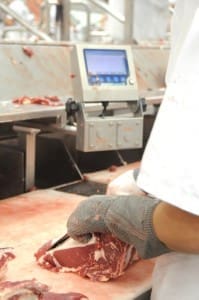WITH three full weeks to go until Christmas plant closures, the finish line is within sight for the 2015 Eastern Australian slaughter season, as cattle throughput continued to edge lower this week.
Eastern states kills above 150,000 head now look unlikely for the remainder of the year, judging by processor comments this morning, with a host of large plants across Eastern Australia now operating on 3-4 day weekly shifts, and/or reduced daily kills to better align with cattle numbers.
 The seasonal closure of three chains at the end of next week (JBS Townsville, Teys Biloela, Casino NSW) will further impact rates of kill across Eastern states. But there’s also some evidence that those closures might help underpin supplies at remaining plants until the normal seasonal closure closer to Christmas, as cattle are diverted to alternate processing facilities.
The seasonal closure of three chains at the end of next week (JBS Townsville, Teys Biloela, Casino NSW) will further impact rates of kill across Eastern states. But there’s also some evidence that those closures might help underpin supplies at remaining plants until the normal seasonal closure closer to Christmas, as cattle are diverted to alternate processing facilities.
In fact some Queensland processors are now talking more optimistically about maintaining five-day shifts later into the year at those plants that will remain open. Weather will be the big wild-card on what happens between now and year’s end, as it will during the opening stages of the 2016 slaughter season.
With only three full weeks left for the current season, there is now a reasonable flow of slaughter cattle being presented, for a variety of reasons: cash flow; the still strong market for good slaughter cattle; uncertainty over the summer seasonal outlook; and the fact that there could be a four-week period (at least) ahead when it could be nigh-on impossible to secure a kill slot.
Grainfed influence on kill composition
Another factor is the rising proportion of grainfeds in the mix of slaughter cattle, as the current season draws to a close and the weekly kills wind-down. With many Queensland and NSW feedlots still operating at close to capacity, grainfed cattle that have done their time will take priority in kills over coming weeks, and again in early 2016.
One large processor in southeast Queensland stopped quoting on grassfeds altogether last week, confident that it will complete its 2015 kill season with the grainfed cattle coming through the pipeline.
In a state-by-state breakdown, Queensland’s kill last week reached just over 64,000 head, another 2pc decline on the week previous. What’s perhaps more important is the declines evident year-on-year – now well into double figures in all states bar Tasmania.
The Queensland tally last week was 21pc down on the same week a year ago, while NSW, at 36,165 head last week, was back 17pc.
Victoria registered a kill last week of 29,500 head, down 12pc year on year, while South Australia at just over 9000 head was 13pc off last year’s pace. Only Tasmania was anywhere near last year’s performance, with 4930 head being only 5pc behind on yearly comparisons.
Grids unchanged
Southeast Queensland grids for a fourth consecutive week are more or less unchanged, as processors face the realisation that simply raising bid offers will no longer flush-out more slaughter stock.
Best cows for SEQ kills in coming weeks were quoted at 505c this morning, with the benchmark four-tooth grassfed ox at 540-545c. MSA yearling grassfed steer is 550-555c this week, grainfed MSA steer 555-560c and best EU grassfed steer 580c.
Store markets have shown some momentum in the past week, with bigger numbers on offer and a firming price trend in many centres over the past seven days. Better feeder/backgrounder types at Roma this morning were making a very solid 350-360c/kg liveweight, Beef Central was told.
Significantly, demand for those cattle appears to be coming primarily from grassfed finishers – not feedlot operators. Feedlots are already showing signs of dropping numbers at present, with some pens, at least, not being re-filled after close-out.
Rainfall over the December January period will strongly dictate whether feedlot numbers on feed decline next year, or remain at the near record levels experienced over the past 18 months.



HAVE YOUR SAY